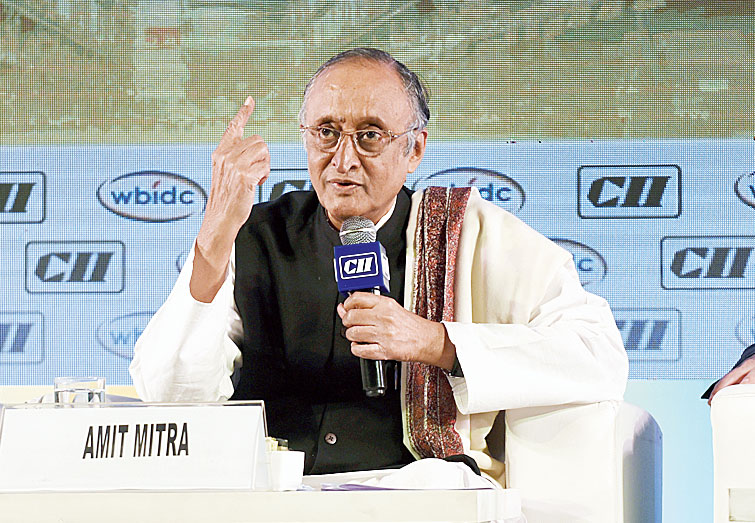Bengal finance minister Amit Mitra has warned against a proposal to raise GST tax slabs across the board to shore up sagging revenues, arguing that such a move would be “highly detrimental and hugely counter-productive” to the economy which is facing stagflation.
In a letter written to Union finance minister Nirmala Sitharaman, Mitra said the government should look to simplify procedures to help small businesses in distress and focus on anti-evasion and fraud-detection measures.
The GST Council, which Sitharaman heads, will meet on December 18 where the agenda includes “review of items currently under exemption”. There are possibilities that the 5 per cent tax slab may be raised to 6 per cent, while additional cess will be added on goods and services under the 18 per cent bracket.
“The basic principle for exempting certain goods and services was that these are basic to people and are consumed by the predominantly poor people and at the same time have very low revenue potential,” Mitra wrote.
Foodgrains, unpacked cereals, oilseeds, curd, lassi puffed rice, meat, fish, fresh milk, fruits and vegetables, sanitary napkins, newspapers, healthcare and education are some of the items that are outside the GST net.
“Any tinkering with the list would undo the hard work which has gone into the identification of the exempted goods and services and will adversely impact the common man,” he wrote in the letter.
Mitra, who had once chaired the empowered committee on GST, said raising the rates on items such as edible oil, sweetmeat, life saving medicine, tea and coffee, which now attract 5 per cent tax, would be “hugely inflationary and worsen the macro-economic situation of the common consumers” as they are meant for mass consumption.











